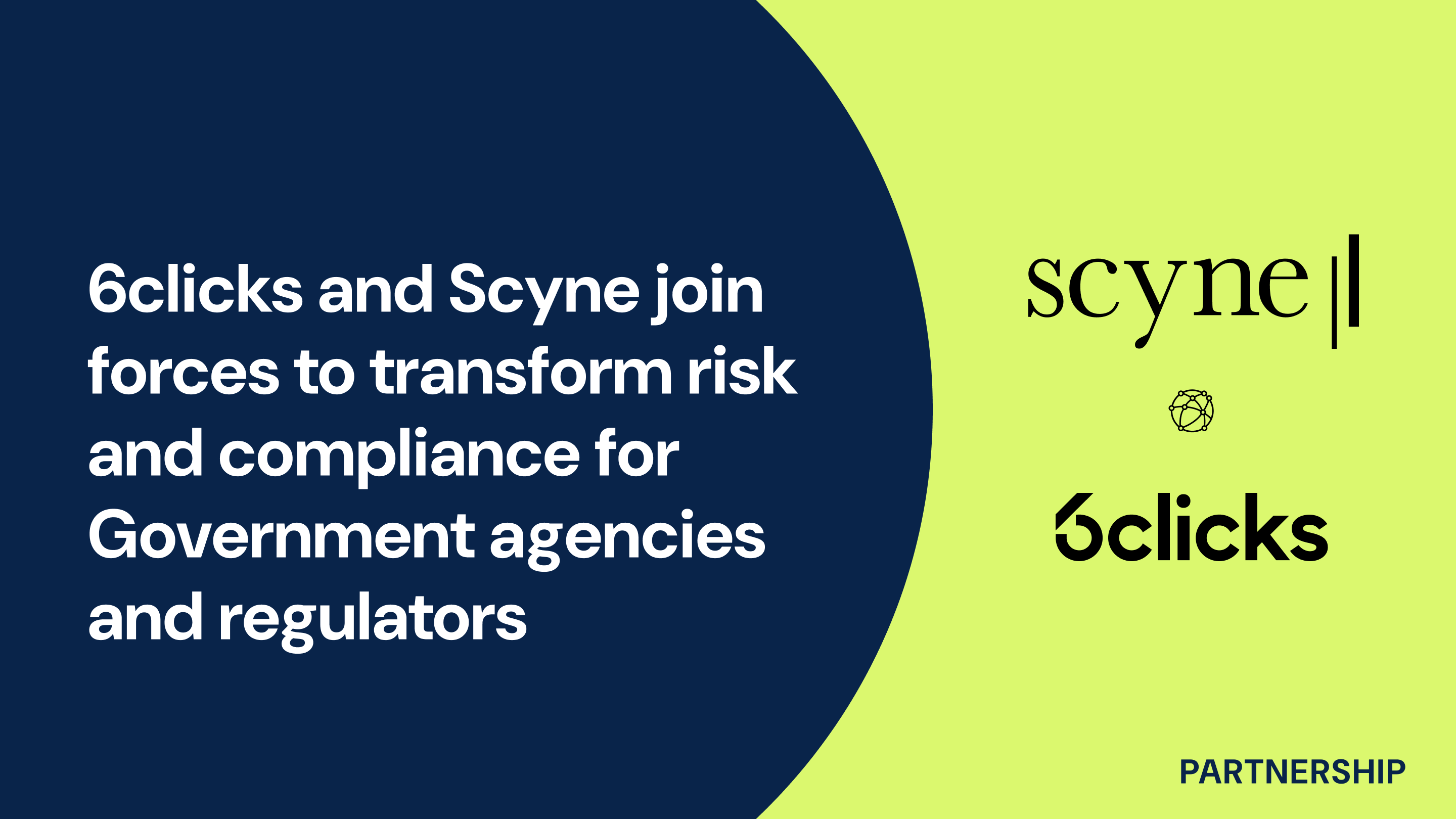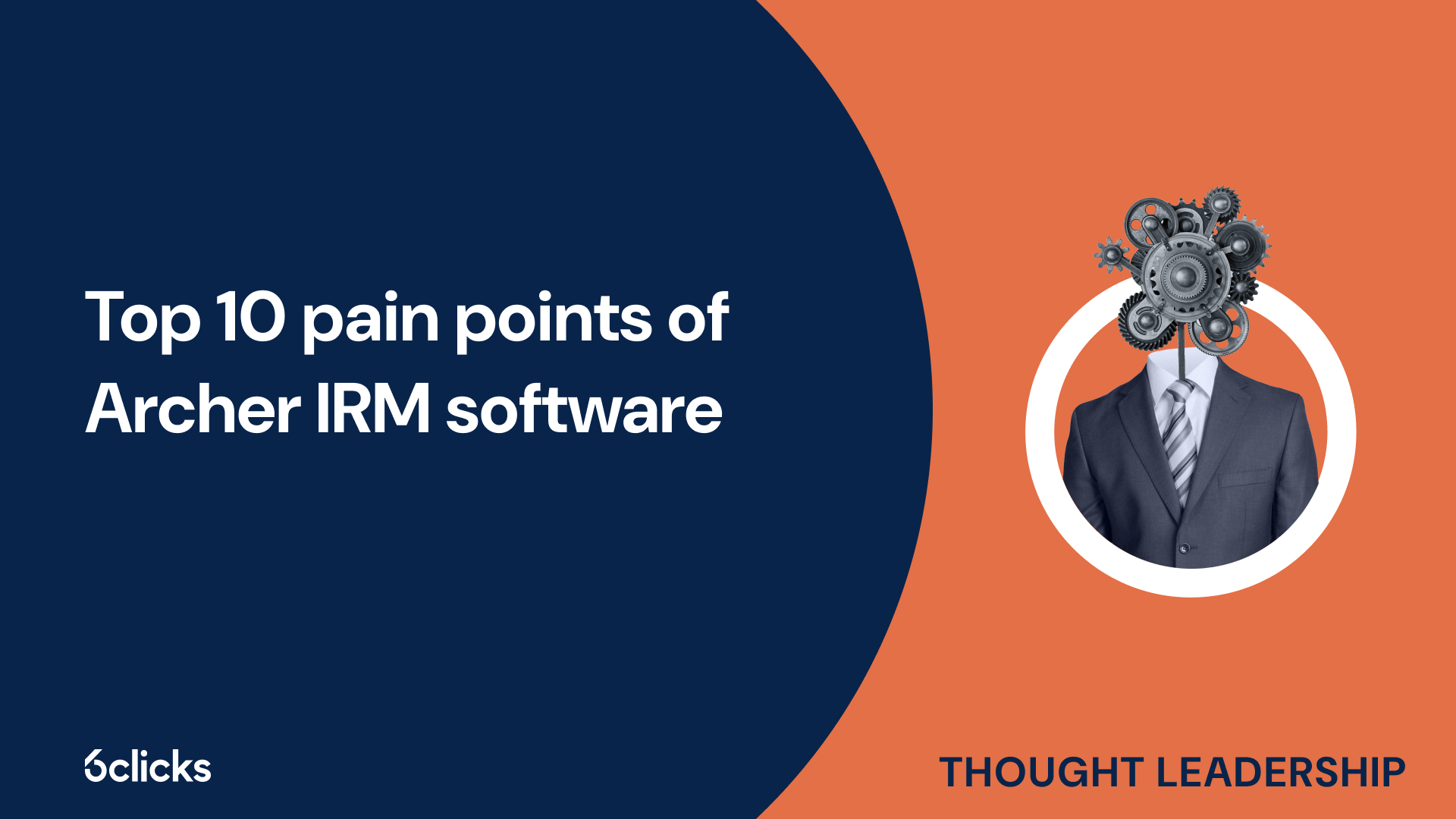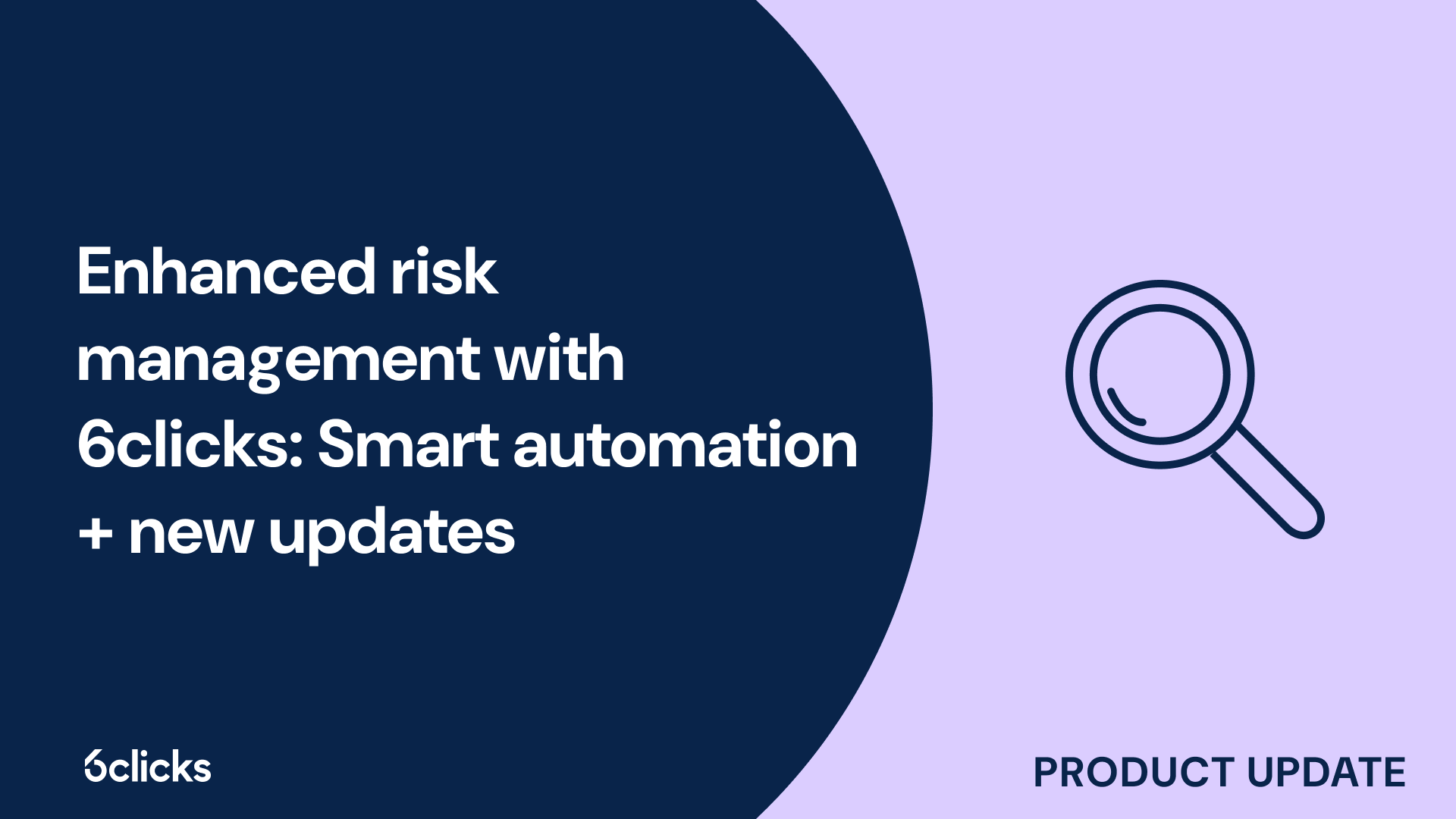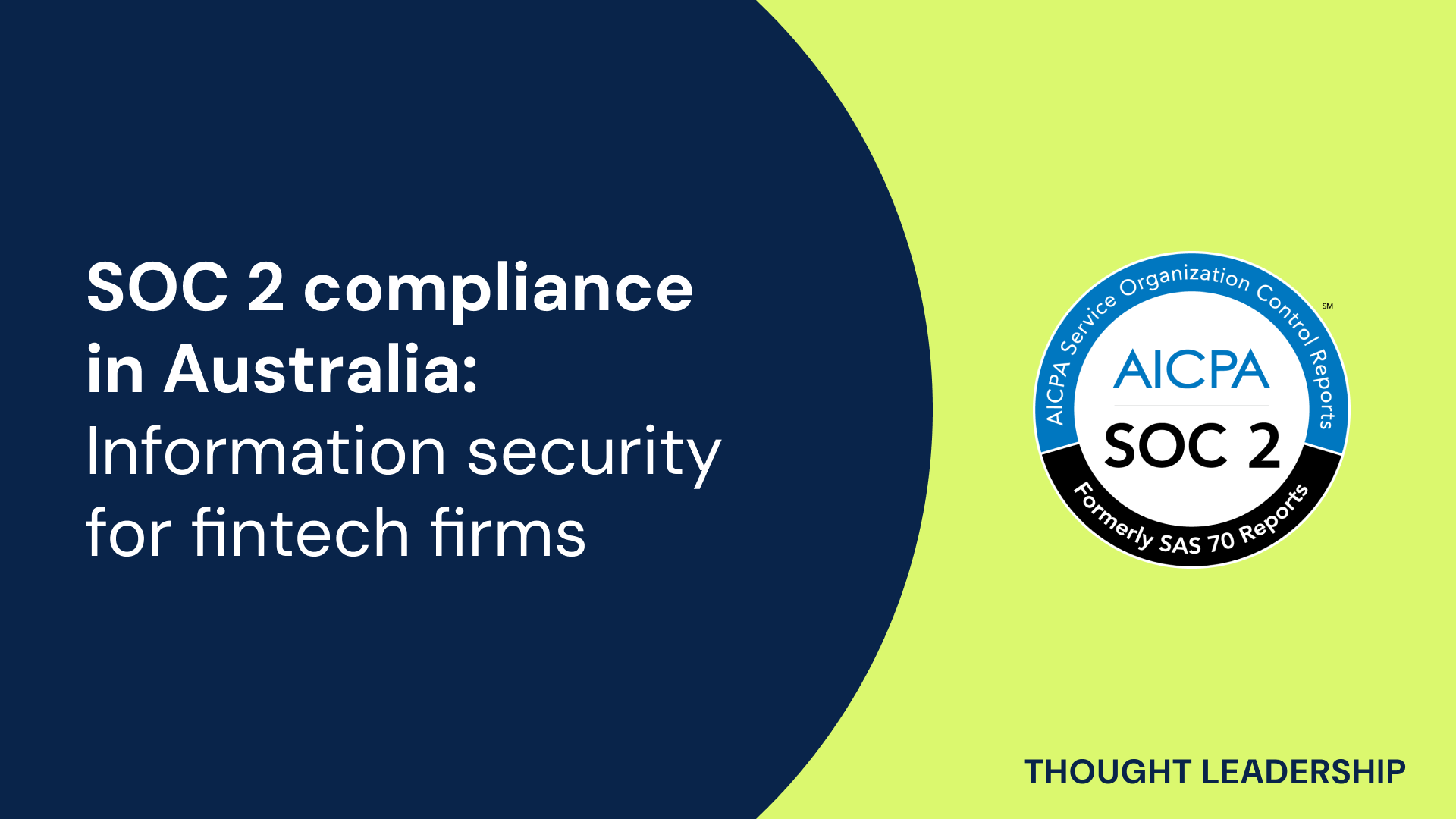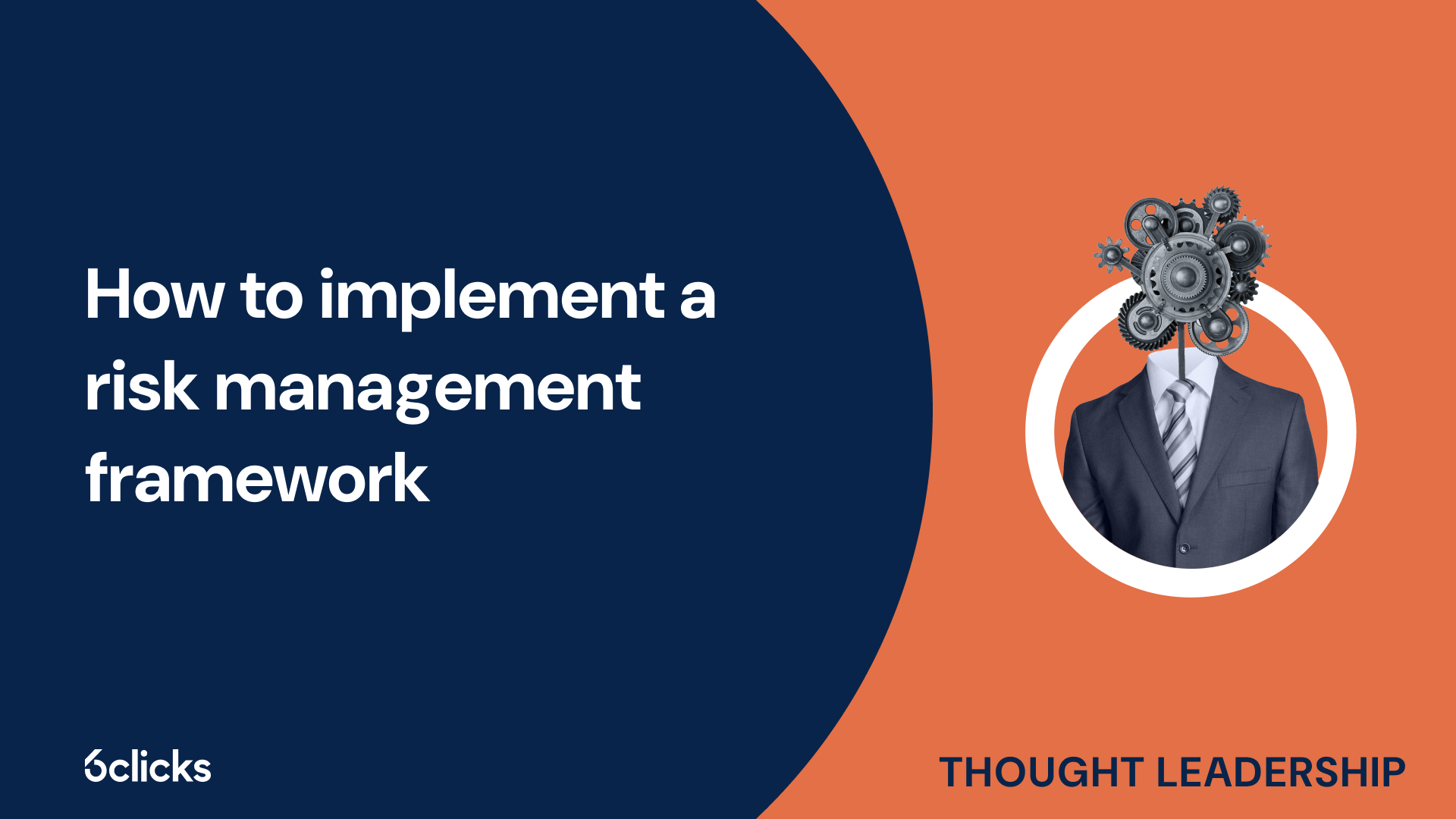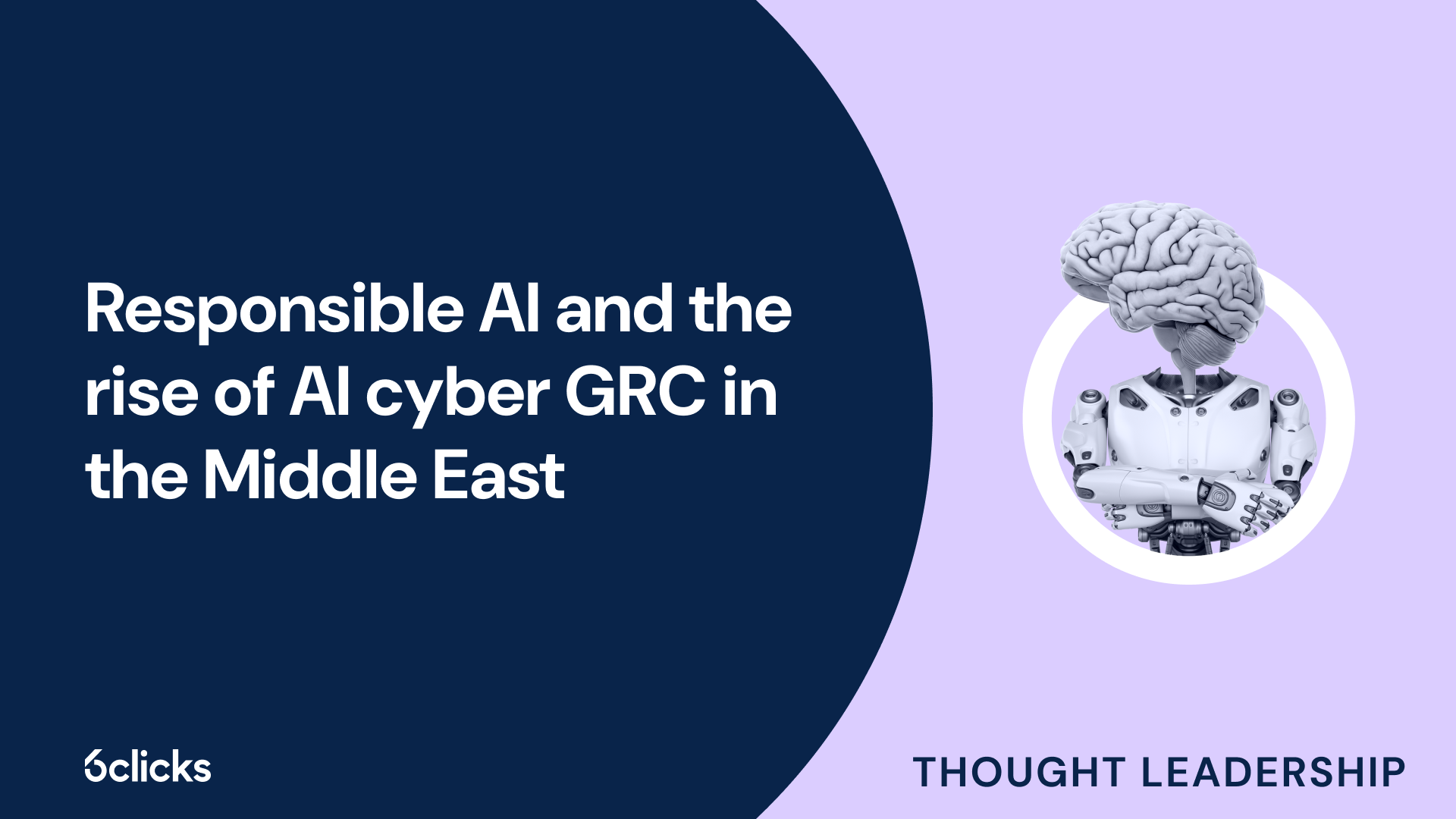The GRC buyer’s guide for 2025: Building resilience with AI-powered, federated solutions
Discover the ultimate GRC buyer's guide for 2025! Uncover how AI-powered, federated solutions transform compliance and security management for industries like government, aerospace, banking, and more. Learn about centralized control, continuous compliance, and advanced cyber GRC capabilities. Download now!
-1.png?width=200&height=249&name=Group%20193%20(1)-1.png)
The GRC buyer’s guide for 2025: Building resilience with AI-powered, federated solutions
Definition of GDPR
The General Data Protection Regulation (GDPR) is a comprehensive set of privacy laws that were introduced by the European Union (EU) in 2018. Its primary purpose is to regulate the collection, processing, and storage of personal data of EU citizens. The GDPR applies to any organization, regardless of its location, that collects or processes the personal data of individuals within the EU. However, there are certain cases and categories of entities who are exempted from the GDPR's scope. In this article, we will explore who exactly the GDPR does not apply to and why.
Overview of who does not need to comply with GDPR
Overview of who does not need to comply with GDPR:
- Personal or Household Activities: GDPR does not apply to individuals who process personal data for purely personal or household activities. This exemption means that individuals who process personal data for activities such as sending emails to family and friends, keeping address books, or maintaining personal blogs are not subject to GDPR regulations.
- Government Agencies and Law Enforcement: GDPR does not apply to the processing of personal data by government agencies and law enforcement authorities for the purposes of national security and law enforcement. These agencies are subject to their own national data protection laws, which may have similar requirements but are not governed by GDPR.
- Processing of Personal Data by Member States: GDPR does not apply to the processing of personal data by Member States in the course of activities that fall within the scope of the Treaty on European Union. This exemption recognizes that Member States have their own specific rules and regulations for processing personal data, particularly for activities related to public safety, national security, and important government functions.
It is important to note that while these specific exemptions exist, organizations and individuals should still ensure that they comply with applicable privacy laws and regulations in their respective jurisdictions. It is advisable to consult legal experts and conduct a thorough analysis of the specific requirements that may apply to their particular situation.
Exemptions from GDPR compliance
While the General Data Protection Regulation (GDPR) imposes stringent privacy laws and regulations on organizations and individuals handling personal data, there are certain exemptions to this rule. Understanding these exemptions is crucial for businesses and individuals alike to ensure compliance with applicable privacy laws and regulations. Some of the key exemptions from GDPR compliance include personal or household activities, government agencies and law enforcement, and the processing of personal data by Member States. However, it is important to note that even if an exemption applies, organizations and individuals should still ensure they comply with privacy laws in their respective jurisdictions. This may involve consulting legal experts and conducting a thorough analysis of the specific requirements that may apply to their particular situation.
Processing personal data for merely personal or household activities
The General Data Protection Regulation (GDPR) is a comprehensive privacy law that governs the processing of personal data within the European Union (EU) and the European Economic Area (EEA). However, there are certain circumstances under which the GDPR does not apply, particularly when it comes to the processing of personal data for merely personal or household activities.
The GDPR exempts the processing of personal data if it is carried out by individuals for their personal or household activities. This means that personal data that is transferred exclusively between families or for personal use is not considered protected under the GDPR.
Examples of activities that fall under this exemption include sharing personal photos or information among family members, using personal contact details for communication within a household, or maintaining a personal address book. These activities are considered to be on a small scale and do not involve commercial purposes or the exchange of personal data with third parties.
It is important to note that once personal data is used for any non-personal or non-household purposes, such as for commercial activities or sharing with external entities, the processing would then be subject to GDPR requirements.
Processing personal data of employees and professionals
The General Data Protection Regulation (GDPR) applies to the processing of personal data of employees and professionals. Personal data refers to any information that can directly or indirectly identify an individual, and this includes data related to employees and professionals.
Under the GDPR, the data controller, who determines the purposes and means of processing personal data, has specific responsibilities when processing the personal data of employees and professionals. This includes ensuring that the processing of personal data is lawful, fair, and transparent. The data controller must also only collect and process personal data that is necessary for the performance of a contract, compliance with legal obligations, or the pursuit of legitimate interests.
The data processor, who processes personal data on behalf of the data controller, also has responsibilities under the GDPR. The data processor must only process personal data in accordance with the instructions provided by the data controller and take appropriate security measures to protect the personal data.
When processing personal data of employees and professionals, there are specific regulations and considerations that must be taken into account. For example, there may be additional requirements regarding the processing of special categories of personal data, such as health information, or criminal convictions and offenses data. Employers may also need to have in place specific policies, procedures, and safeguards to ensure the protection of personal data and the rights of employees and professionals.
Processing personal data by not-for-profit organisations, churches and religious associations
Processing personal data by not-for-profit organizations, churches, and religious associations may be exempt from certain requirements of the General Data Protection Regulation (GDPR) under specific conditions. This exemption applies when the processing is carried out for religious, philosophical, or non-profit purposes.
Not-for-profit organizations, churches, and religious associations are recognized for their unique characteristics and the importance of their missions. The GDPR acknowledges that their activities often involve processing personal data, but applying the same requirements as for profit-oriented organizations may hinder their ability to fulfill their objectives.
To be exempt from certain GDPR compliance, these organizations must meet certain criteria. Firstly, they must process personal data exclusively for religious, philosophical, or non-profit purposes. This means that any commercial activity or processing unrelated to their core objectives would still be subject to GDPR requirements.
Additionally, the exemption applies when the processing is carried out by institutions, associations, or other bodies that are not-for-profit and operate on the basis of religious or philosophical beliefs. This can include churches, religious communities, charitable organizations, and other similar entities.
It is important to note that while these organizations may be exempt from certain GDPR requirements, they still need to ensure the protection of personal data and respect individuals' rights. They should establish appropriate safeguards and security measures to prevent unauthorized access or disclosure of personal data.
Processing special categories of data or criminal conviction data for public interest purposes
The General Data Protection Regulation (GDPR) imposes strict rules on processing personal data, especially when it pertains to special categories of data or criminal conviction data. However, exemptions exist for processing such data for public interest purposes.
Under the GDPR, processing special categories of data, such as racial or ethnic origin, political opinions, religious or philosophical beliefs, trade union membership, genetic data, biometric data, or data concerning health, is generally prohibited. Similarly, processing data relating to criminal convictions or offenses is also restricted.
However, processing special categories of data or criminal conviction data may be allowed if it is done for public interest purposes. This includes instances where the processing is necessary for the performance of tasks carried out in the public interest or in the exercise of official authority. In such cases, explicit consent from the data subject is not always required. Instead, processing such data is permitted when authorized by EU or national law that provides for appropriate safeguards for the rights and freedoms of individuals.
Examples of special categories of data that may fall under this exemption include medical records for public health research, racial or ethnic data for combating discrimination, and criminal conviction data for maintaining public security. Nevertheless, organizations processing such data for public interest purposes must still adhere to the principles of data protection and ensure that appropriate security measures are in place to safeguard the data.
Processing data for scientific research purposes or statistical purposes
Under the GDPR, there are exemptions and guidelines for processing personal data for scientific research purposes or statistical purposes. Article 89 of the GDPR provides derogations that allow for the processing of personal data without the need to obtain explicit consent from the data subjects.
Processing personal data for scientific research purposes is deemed lawful if it complies with certain safeguards. These safeguards include ensuring that the processing is necessary for the performance of a task carried out in the public interest, that the research purpose cannot be fulfilled by processing anonymized data, and that appropriate safeguards are implemented to protect the rights and freedoms of individuals.
Special categories of data, such as racial or ethnic origin, political opinions, religious or philosophical beliefs, trade union membership, genetic data, biometric data, or data concerning health, may be processed for scientific research purposes if specific conditions are met. These conditions include obtaining the explicit consent of the data subject or if the processing is necessary for reasons of substantial public interest, based on EU or national law.
Similarly, processing personal data for statistical purposes is also subject to specific conditions. These include ensuring that the processing is necessary for the performance of a task carried out in the public interest and that appropriate safeguards are in place to protect the rights and freedoms of individuals.
In both cases, organizations processing personal data for scientific or statistical purposes must adhere to the principles of data protection and implement technical and organizational measures to ensure the security and confidentiality of the data.
Exemptions based on territorial scope or annual revenue
Exemptions based on territorial scope or annual revenue provide certain companies with relief from GDPR compliance obligations. These exemptions mainly apply to non-EU companies and those companies established in non-EU countries.
For companies based outside the EU, GDPR does not apply if their processing activities do not involve offering goods or services to individuals in the EU, or monitoring the behavior of individuals who are in the EU. This means that if a company operates solely outside the EU and does not target EU customers or engage in behavior tracking within the EU, they are exempt from GDPR compliance.
In addition, non-EU companies may be exempt if they fall below a certain annual revenue threshold. GDPR does not apply to companies that do not have a presence in the EU, have less than a specific annual revenue amount, and their processing activities do not involve the regular and systematic monitoring of individuals on a large scale or the processing of sensitive personal data.
To be considered exempt under these exemptions, companies must meet specific criteria. For the territorial scope exemption, companies must ensure that their processing activities do not involve offering goods or services to individuals in the EU or monitoring the behavior of individuals in the EU. For the annual revenue exemption, companies must meet the requirements of having no presence in the EU, falling below a certain annual revenue threshold, and not engaging in large-scale monitoring or processing of sensitive personal data.
It is important to note that while these exemptions may provide relief from GDPR compliance, companies are still subject to compliance requirements under their own country-specific privacy laws and regulations.
National law exemptions from GDPR compliance
Under the General Data Protection Regulation (GDPR), EU member states have the ability to introduce exemptions to GDPR compliance based on their own national laws for specific reasons such as national security or judicial proceedings. These exemptions are put in place to ensure the balance between protecting fundamental rights and freedoms of individuals while also addressing important state interests.
For example, national security is a key consideration when it comes to data protection. EU member states may introduce exemptions to GDPR compliance if they can demonstrate that the processing of personal data is necessary to safeguard national security. This means that certain data processing activities carried out by government agencies or intelligence services may be exempt from certain provisions of the GDPR.
Similarly, exemptions may be introduced for processing activities related to judicial proceedings. EU member states may provide exemptions to GDPR compliance if it interferes with ongoing legal proceedings, the administration of justice, or the prevention, investigation, detection, or prosecution of criminal offenses. This ensures that legal proceedings are not hindered by strict data protection requirements.
It is important to note that these national law exemptions must still respect the fundamental rights and freedoms of individuals. EU member states must ensure that any exemptions they introduce are necessary, proportionate, and in line with the principles of the GDPR. This helps to strike a balance between protecting individual privacy and allowing for certain exceptions based on specific state interests.
Conclusion
In conclusion, the General Data Protection Regulation (GDPR) has certain exemptions from compliance for specific situations. Firstly, national security is a significant consideration, allowing EU member states to introduce exemptions if data processing is necessary for safeguarding national security. Similarly, exemptions may be provided for processing activities related to ongoing legal proceedings, ensuring they are not hindered by strict data protection requirements.
Other exemptions include those for journalism and free speech, ensuring that the media can carry out their vital role without unnecessary limitations. Historic and scientific research also benefits from exemptions, allowing for the processing of personal data in these fields.
Furthermore, companies outside the EU without EU customers or users may be exempt from GDPR compliance. This means that if a non-EU company does not provide services or process data for individuals within the EU, they may not be subject to the GDPR's regulations.



